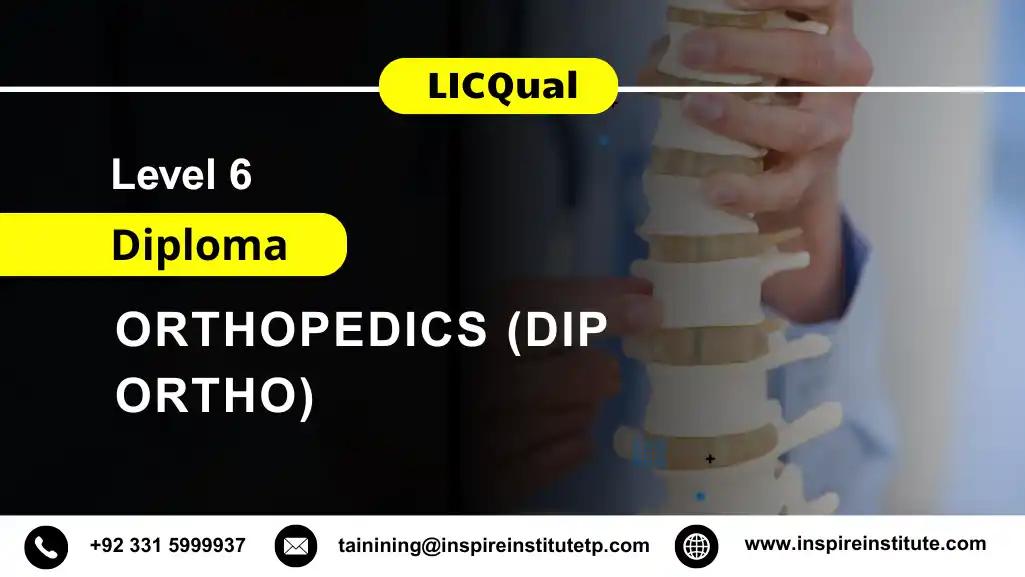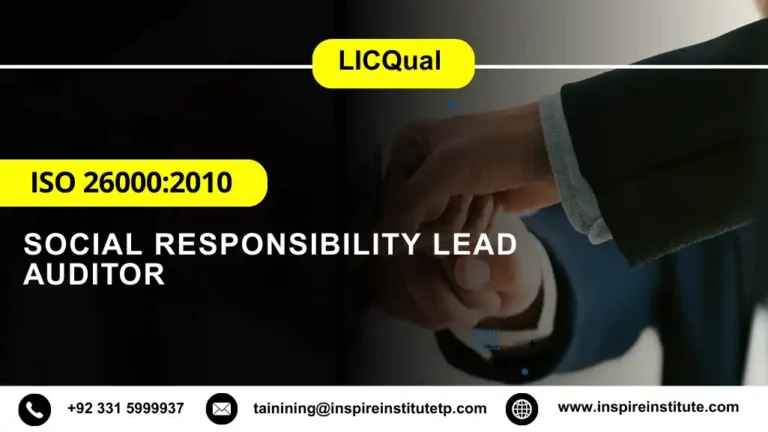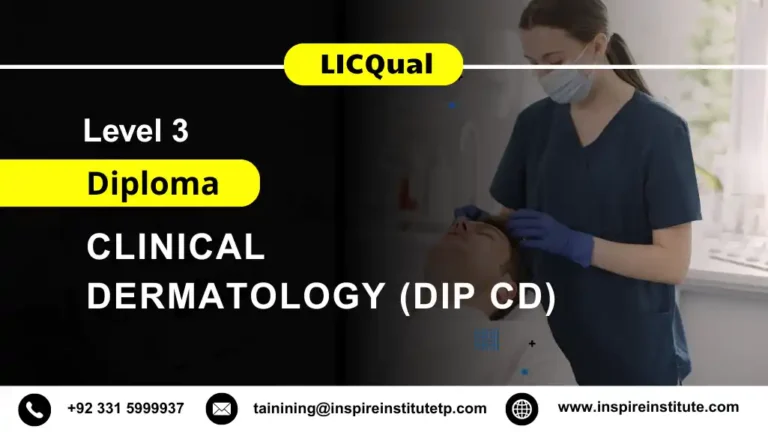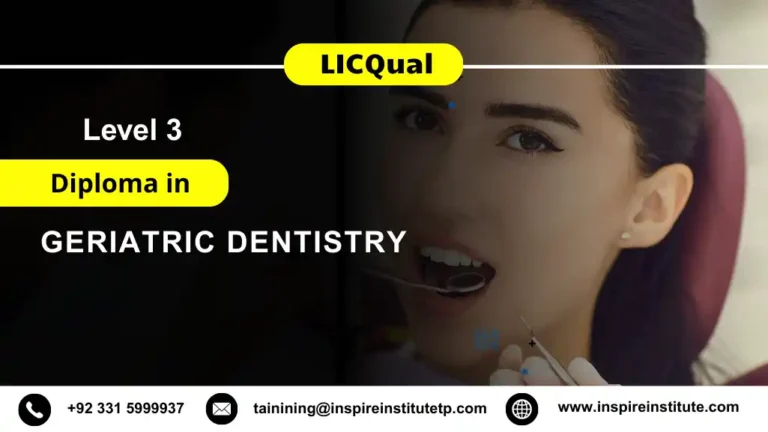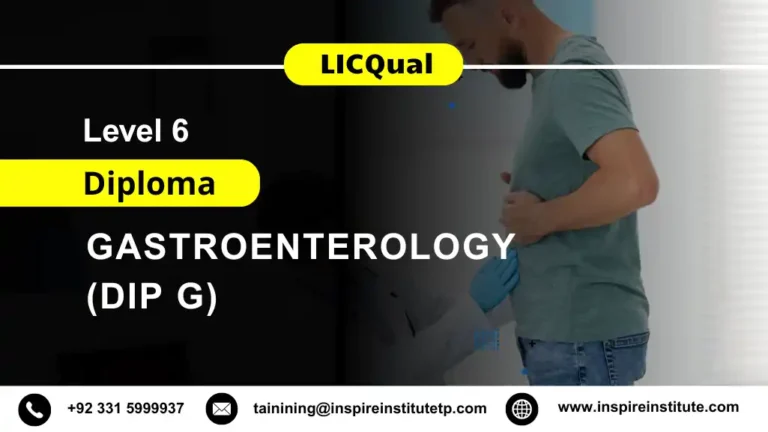LICQual Level 6 Diploma in Orthopedics (Dip Ortho)
The LICQual Level 6 Diploma in Orthopedics (Dip Ortho) is a UK-accredited qualification designed to equip healthcare professionals with advanced knowledge, clinical expertise, and practical skills in orthopedic medicine. As musculoskeletal disorders and injuries continue to rise globally, the need for skilled orthopedic specialists has never been greater. This course Orthopedics addresses the increasing demand for competent practitioners capable of diagnosing, managing, and rehabilitating patients with bone, joint, and muscular conditions effectively.
This Orthopedics Diploma bridges theoretical foundations with real-world clinical application, providing learners with a strong understanding of human anatomy, biomechanics, and orthopedic pathology. It focuses on both surgical and non-surgical management techniques, ensuring participants gain a holistic perspective of patient care. Through in-depth modules and case-based learning, learners develop the ability to evaluate complex orthopedic cases with confidence and precision.
The LICQual Level 6 Diploma in Orthopedics (Dip Ortho) is ideal for doctors, nurses, physiotherapists, and allied health professionals aspiring to enhance their career in orthopedic care. The course provides a comprehensive understanding of trauma management, musculoskeletal diagnostics, fracture care, and rehabilitation methods. It prepares learners to work effectively in hospital, clinical, or rehabilitation environments while adhering to the highest medical and ethical standards.
Why Choose this Qualification
The LICQual Level 6 Diploma in Orthopedics (Dip Ortho) is a highly specialized and internationally recognized qualification designed for healthcare professionals who aspire to excel in orthopedic medicine. This comprehensive, assignment-based diploma provides advanced theoretical knowledge, diagnostic expertise, and hands-on clinical understanding to enhance professional practice in orthopedic care. The qualification Orthopedics equips learners with the competencies required to assess, manage, and rehabilitate musculoskeletal conditions, ensuring they are well-prepared for leadership and specialist roles in hospitals, clinics, and healthcare institutions worldwide.
Key Reasons to Choose this Qualification
1. Globally Recognized and Professionally Accredited Qualification
- Accredited by LICQual (UK), ensuring compliance with international healthcare and education standards.
- Widely accepted by employers, hospitals, and medical organizations around the world.
- Enhances professional credibility and opens doors to global career opportunities.
- Demonstrates advanced clinical competence and commitment to professional growth.
- Provides recognition that meets measurable international healthcare benchmarks.
2. Advanced Knowledge of Orthopedic Science
- Delivers a deep understanding of skeletal, muscular, and joint systems and their clinical relevance.
- Covers topics such as trauma management, fracture healing, and musculoskeletal pathology.
- Focuses on modern orthopedic techniques, surgical principles, and patient rehabilitation strategies.
- Integrates evidence-based practice with theoretical learning for informed decision-making.
- Develops strong analytical skills for diagnosing and managing orthopedic conditions.
3. Practical Application and Clinical Relevance
- Encourages learners to apply knowledge in real-world healthcare environments.
- Includes case studies and simulated clinical scenarios to enhance critical thinking.
- Strengthens skills in orthopedic assessment, treatment planning, and postoperative care.
- Promotes a problem-solving approach in managing trauma and degenerative disorders.
- Ensures learners gain measurable clinical competencies aligned with modern orthopedic practice.
4. Development of Professional and Leadership Skills
- Enhances communication, coordination, and teamwork abilities within multidisciplinary healthcare settings.
- Builds leadership confidence for supervisory or specialist roles in orthopedic departments.
- Promotes ethical decision-making and patient-centered care approaches.
- Equips learners to handle challenging clinical situations with professionalism and accuracy.
- Encourages reflective practice and continuous self-improvement in medical performance.
5. Comprehensive and Flexible Learning Approach
- Delivered through a flexible, assignment-based learning model suitable for working professionals.
- Allows learners to balance clinical duties with academic advancement.
- Offers structured modules covering both theoretical and practical components.
- Provides digital learning materials, tutor support, and access to medical case references.
- Ensures progressive skill development that can be applied immediately in the workplace.
6. Pathway to Career Advancement and Higher Education
- Serves as a foundation for progression to postgraduate studies or specialist training.
- Increases eligibility for senior roles such as Orthopedic Specialist, Clinical Instructor, or Consultant.
- Enhances potential for employment in hospitals, rehabilitation centers, and academic institutions.
- Provides measurable outcomes that contribute to professional licensing or registration.
- Strengthens the learner’s academic portfolio for future medical or research opportunities.
7. Strong Focus on Research and Evidence-Based Practice
- Trains learners to critically evaluate research studies and apply findings in clinical settings.
- Promotes the use of scientific evidence in orthopedic diagnosis and treatment.
- Develops skills in writing clinical reports, case evaluations, and evidence-based recommendations.
- Encourages innovation in orthopedic techniques and rehabilitation methods.
- Fosters a culture of continuous learning and medical excellence.
8. Contribution to Community and Healthcare Improvement
- Equips professionals to deliver better patient outcomes through informed orthopedic interventions.
- Strengthens capacity to contribute to public health and preventive orthopedic care.
- Encourages ethical practices and sensitivity to patient welfare and cultural diversity.
- Prepares learners to mentor junior staff and support orthopedic education programs.
- Builds a sense of responsibility towards improving global orthopedic healthcare standards.
The LICQual Level 6 Diploma in Orthopedics (Dip Ortho) is a valuable qualification for healthcare professionals seeking advanced expertise and international recognition in orthopedic practice. By combining theoretical knowledge, practical application, and leadership development, this diploma Orthopedics empowers learners to make a lasting impact in the field of musculoskeletal health. Whether your goal is career advancement, clinical specialization, or further academic progression, this qualification provides the tools, confidence, and global credibility needed to excel in the evolving world of orthopedic medicine.
Course Overview
LICQual UK Awarding Body
Average Completion Time:
6-24 Months
Study Units: 6 Units
Evidence & Assignment Based
Mandatory Units
Who Should Take This Course
The LICQual Level 6 Diploma in Orthopedics (Dip Ortho) is a comprehensive and globally recognized qualification tailored for individuals aspiring to advance their professional competence in orthopedic practice. This diploma Orthopedics is ideal for medical practitioners, healthcare professionals, and allied health workers seeking to enhance their expertise in musculoskeletal health, orthopedic surgery, and patient rehabilitation. By integrating theoretical understanding with applied clinical skills, the course prepares learners to deliver safe, effective, and evidence-based orthopedic care in diverse healthcare settings.
This Course is Suitable For
1. Medical Practitioners and General Physicians
- Designed for doctors who wish to specialize or expand their scope into orthopedic medicine.
- Enhances diagnostic and clinical decision-making skills related to bone, joint, and muscular conditions.
- Provides measurable competencies in trauma management and orthopedic evaluation.
- Strengthens understanding of surgical and non-surgical treatment methods.
- Enables practitioners to deliver advanced orthopedic care aligned with global healthcare standards.
2. Orthopedic Technicians and Clinical Assistants
- Equips assistants with advanced knowledge of orthopedic anatomy, injury assessment, and patient care.
- Enhances practical skills in assisting orthopedic surgeons during procedures.
- Develops understanding of medical instruments, splinting, and casting techniques.
- Encourages accuracy, precision, and adherence to clinical safety protocols.
- Improves efficiency and performance in clinical and hospital environments.
3. Physiotherapists and Rehabilitation Specialists
- Provides in-depth insight into post-surgical rehabilitation and physical recovery management.
- Strengthens clinical reasoning in musculoskeletal therapy and pain management.
- Teaches evidence-based practices for mobility restoration and functional improvement.
- Builds confidence in developing customized rehabilitation plans for orthopedic patients.
- Promotes interdisciplinary collaboration with orthopedic teams for holistic care delivery.
4. Nurses and Paramedical Staff in Orthopedic Units
- Enhances nursing competencies in patient monitoring, orthopedic care, and wound management.
- Strengthens skills in patient positioning, handling orthopedic equipment, and assisting in surgeries.
- Encourages continuous learning to align with international orthopedic nursing standards.
- Promotes effective communication and coordination with surgeons and therapists.
- Builds confidence in delivering compassionate, safe, and efficient patient care.
5. Healthcare Administrators and Clinical Managers
- Ideal for professionals managing orthopedic departments or clinical operations.
- Provides understanding of orthopedic service delivery, patient flow, and quality assurance.
- Enhances decision-making in resource allocation, equipment management, and staff coordination.
- Promotes the implementation of safety standards and evidence-based clinical policies.
- Equips leaders to ensure measurable improvements in patient satisfaction and healthcare outcomes.
6. Medical Educators and Trainers
- Suitable for professionals involved in teaching or mentoring healthcare trainees.
- Strengthens knowledge of orthopedic theory, applied practice, and teaching methodologies.
- Enables educators to design and deliver structured orthopedic learning modules.
- Encourages critical analysis of new orthopedic research and technologies.
- Enhances the ability to mentor learners and promote excellence in clinical education.
7. Healthcare Professionals Seeking Career Progression
- Ideal for individuals aiming to advance to senior, specialist, or consultancy roles.
- Provides measurable outcomes that enhance career profiles and global employability.
- Builds leadership, teamwork, and research capabilities for higher professional responsibilities.
- Opens pathways to postgraduate studies or specialized orthopedic programs.
- Equips learners with skills that meet international healthcare and professional benchmarks.
8. International Healthcare Workers Seeking Global Recognition
- Designed for professionals looking to gain a UK-accredited orthopedic qualification.
- Provides internationally recognized certification for global career mobility.
- Aligns with global competency frameworks and evidence-based clinical standards.
- Enhances cross-border employability in hospitals, clinics, and academic institutions.
- Demonstrates commitment to continuous professional development and patient-centered care.
The LICQual Level 6 Diploma in Orthopedics (Dip Ortho) is suitable for a broad range of healthcare professionals seeking to deepen their expertise in orthopedic science and clinical practice. Whether you are a doctor, therapist, nurse, or healthcare manager, this qualification empowers you with measurable skills, advanced knowledge, and practical insights that enhance your professional capabilities. By completing this diploma, Orthopedics learners not only strengthen their clinical competence but also contribute to improving global standards of orthopedic healthcare delivery.
Course Benefits
The LICQual Level 6 Diploma in Orthopedics (Dip Ortho) offers exceptional advantages for healthcare professionals aiming to expand their expertise in the diagnosis, treatment, and rehabilitation of musculoskeletal disorders. This advanced, assignment-based qualification blends theoretical excellence with practical clinical application, enabling learners to manage orthopedic conditions effectively and deliver high-quality patient care. Designed to support professional growth and flexibility, the program equips learners with the skills and knowledge required to excel in orthopedic medicine, surgery, and rehabilitation across global healthcare systems.
Key Benefits of the Course
Specialist Knowledge
- Gain an in-depth understanding of the anatomy, physiology, and pathology of the musculoskeletal system.
- Learn about trauma management, bone healing, fracture fixation, and joint replacement techniques.
- Explore advanced orthopedic principles, including surgical and non-surgical treatment strategies.
- Study the prevention, diagnosis, and management of common orthopedic disorders such as arthritis, fractures, and musculoskeletal injuries.
- Develop the ability to apply evidence-based clinical reasoning for effective patient assessment and management.
Practical Application
- Build competence in orthopedic assessment, treatment planning, and rehabilitation strategies.
- Strengthen skills in clinical procedures such as splinting, casting, and post-operative care.
- Gain proficiency in evaluating musculoskeletal function and mobility restoration.
- Engage in real-world case studies that simulate clinical decision-making scenarios Orthopedics.
- Learn to integrate theory into practice to deliver safe, effective, and patient-centered orthopedic care.
Recognised Qualification
- Earn a UK-accredited diploma that validates professional expertise in orthopedic science and practice.
- Recognition ensures compliance with international healthcare standards and quality assurance frameworks.
- Enhances employability across hospitals, medical centers, rehabilitation units, and teaching institutions.
- Demonstrates measurable competence and professional dedication to orthopedic excellence.
- Serves as a globally recognized credential for career advancement in healthcare.
Flexible Learning Pathway
- Delivered through an assignment-based structure designed for working healthcare professionals.
- Allows learners to study at their own pace while maintaining professional responsibilities.
- Provides structured academic support, online materials, and tutor guidance throughout the program Orthopedics.
- Encourages continuous learning without disrupting clinical duties or patient care schedules.
- Enables professionals to balance academic development with real-world medical practice.
Evidence-Based Training
- Focuses on the latest orthopedic research, clinical guidelines, and technological advancements.
- Trains learners to apply evidence-based approaches to diagnosis, treatment, and patient rehabilitation.
- Encourages critical evaluation of modern surgical and non-surgical orthopedic methods.
- Promotes analytical thinking and continuous adaptation to emerging orthopedic trends.
- Ensures learners deliver care grounded in scientifically validated practices.
Career Development
- Expands professional pathways into advanced clinical, academic, or leadership roles in orthopedics.
- Strengthens eligibility for roles such as Orthopedic Specialist, Consultant, or Clinical Instructor.
- Enhances professional portfolios for higher education or research-based opportunities.
- Provides measurable competencies that support professional licensing or specialist recognition.
- Increases global employability through an internationally recognized orthopedic qualification.
Enhanced Patient Care
- Prepares learners to deliver comprehensive and compassionate orthopedic care.
- Enhances abilities to manage trauma, fractures, and degenerative musculoskeletal conditions effectively.
- Builds expertise in developing individualized treatment and rehabilitation plans.
- Improves patient outcomes through informed, ethical, Orthopedics and patient-centered medical practice.
- Promotes a holistic understanding of orthopedic health, function, and recovery.
Professional Growth
- Develops leadership, teamwork, and clinical decision-making abilities within healthcare environments.
- Strengthens communication and collaboration across multidisciplinary medical teams.
- Encourages reflective practice and lifelong learning in orthopedic medicine.
- Builds confidence in managing complex orthopedic cases with precision and professionalism.
- Fosters a commitment to continuous improvement and global healthcare excellence.
The LICQual Level 6 Diploma in Orthopedics (Dip Ortho) empowers healthcare professionals with advanced orthopedic knowledge, practical clinical skills, and an internationally recognized qualification. It prepares learners to meet the growing global demand for orthopedic expertise, drive innovation in musculoskeletal health, and deliver measurable improvements in patient outcomes. This diploma Orthopedics serves as a pathway to professional advancement, specialized practice, and meaningful contributions to modern orthopedic medicine.
Eligibility Criteria
The LICQual Level 6 Diploma in Orthopedics (Dip Ortho) is a UK-accredited qualification designed for healthcare professionals seeking to enhance their knowledge and clinical expertise in the diagnosis, treatment, and rehabilitation of musculoskeletal disorders.
Educational Background
Applicants should hold a recognized medical, physiotherapy, nursing, or healthcare-related degree such as MBBS, DPT, BSc Nursing, or equivalent qualification.
Individuals with a Level 5 diploma or equivalent certification in a relevant medical or allied health discipline may also be considered.
Candidates possessing international medical or healthcare qualifications will be assessed individually to determine eligibility and academic equivalence.
Professional Experience
A minimum of one year of professional experience in healthcare, physiotherapy, or a related clinical environment is recommended.
Exposure to orthopedic care, trauma management, rehabilitation, or musculoskeletal assessment is advantageous.
Healthcare professionals currently working in hospitals, clinics, or rehabilitation centers are strongly encouraged to apply.
Applicants with limited orthopedic experience but a strong motivation to develop expertise in this field are also eligible.
Age Requirement
Learners must be at least 18 years of age at the time of enrollment.
This ensures learners possess the maturity, clinical judgment, and responsibility necessary for an advanced medical qualification.
Applicants are expected to exhibit professional conduct and ethical awareness throughout the learning process.
Language Proficiency
As the program is delivered in English, learners must demonstrate proficiency in reading, writing, and communication.
A minimum IELTS score of 6.0 or an equivalent English qualification is recommended for non-native speakers.
Applicants must be capable of understanding complex medical terminology and producing well-structured written assignments.
English fluency ensures effective engagement in academic discussions and comprehension of clinical case materials.
Technical Requirements
Applicants should have access to a computer or laptop with a stable internet connection to facilitate online study.
Basic IT literacy is required for accessing digital resources, participating in virtual tutorials, and submitting assignments.
The course utilizes an interactive learning platform where learners can download study materials, communicate with tutors, and manage coursework.
Required Documents
A valid passport or national ID for identity verification.
Certified copies of educational qualifications such as degrees, diplomas, or transcripts.
Proof of professional experience, such as employment verification letters or professional licenses (if applicable).
For international applicants, equivalency documentation may be required to confirm qualification recognition.
The Qualification Process
LICQual Level 6 Diploma in Orthopedics (Dip Ortho) follows a structured pathway to ensure learners gain comprehensive knowledge, practical skills, and professional competence in community oral healthcare.
Step 1: Self-Assessment
Learners review the entry requirements to confirm eligibility. Candidates with a background in dentistry, oral health, or public health are encouraged to apply.
Step 2: Registration
Complete the registration process by submitting required documents such as proof of qualifications, a valid ID, and payment of enrollment fees.
Step 3: Induction
An induction session is conducted to:
- Verify learner eligibility and documentation.
- Introduce study materials, learning outcomes, and assessment procedures.
Step 4: Learning and Evidence Submission
Learners complete assignments, case studies, and practical exercises demonstrating competence in public health dentistry, community oral health assessment, preventive strategies, and program planning.
Step 5: Feedback and Revision
Assessors review submitted evidence and provide constructive feedback. Learners can revise and resubmit work to meet all required standards.
Step 6: Competence Validation
Final submissions are evaluated to confirm that learners have met all theoretical and practical learning outcomes.
Step 7: Internal Quality Assurance (IQA)
The IQA team reviews the assessment process to ensure accuracy, fairness, and compliance with international standards.
Step 8: External Verification (EQA)
External verifiers validate the authenticity and quality of learner achievements.
Step 9: Certification
Upon successful verification, learners are awarded LICQual Level 6 Diploma in Orthopedics (Dip Ortho), demonstrating advanced proficiency in community oral healthcare and preparing them for professional growth in dental public health, preventive dentistry, and healthcare policy.

